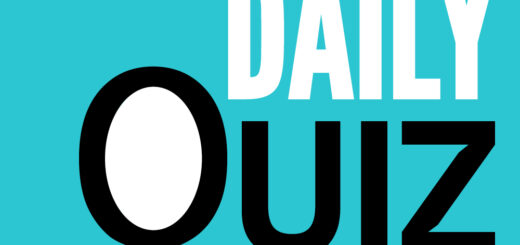Daily Current Affair Quiz: 4th October 2019
1. Which of the following statements are true?
1. Petroleum and Natural Gas Regulatory Board (PNGRB) is the first regulatory body set up by the Government of India.
2. One of the tasks of PNGRB is to ensure competitive markets for gas.
3. Appeals against the decisions of PNGRB go before the Appellate Tribunals for Electricity.
(a) 1 only
(b) 2 and 3 only
(c) 1, 2 and 3
(d) 1 and 3 only
Ans: b
Justification:
- The Petroleum and Natural Gas Regulatory Board (PNGRB) was constituted under The Petroleum and Natural Gas Regulatory Board Act, 2006.
- The Act provide for the establishment of Petroleum and Natural Gas Regulatory Board to protect the interests of consumers and entities engaged in specified activities relating to petroleum, petroleum products and natural gas and to promote competitive markets and for matters connected therewith or incidental thereto.
- The Appellate Tribunal established under section 110 of the Electricity Act, 2003 (36 of 2003) is the Appellate Tribunal for the purposes of Petroleum and Natural Gas Regulatory Board Act, 2006.
2. In India, ‘extended producer responsibility’ was introduced as an important feature in which of the following?
(a) The Bio -medical Waste (Management and Handling) Rules, 1998
(b) The Recycled Plastic (Manufacturing and Usage) Rules, 1999
(c) e -Waste (Management and Handling) Rules, 2011 (d)
(d) The Food Safety and Standard Regulations, 2011
Ans: c
Justification:
- Extended producer’s responsibility (EPR) is the main feature of the E -waste (Management and Handling) Rules, 2011, wherein the producer of electrical and electronic equipment has the responsibility of managing such equipment after its ‘end of life’, thus the producer is responsible for their products once the consumer discards them.
3. With reference to communications technologies, what is/are the difference/differences between LTE (Long-Term Evolution) and VoLTE (Voice over Long-Term Evolution)?
1. LTE is commonly marketed as 3G and VoLTE is commonly marketed as advanced 3G.
2. LTE is data-only technology and VoLTE is voice-only technology
(a) 1 only
(b) 2 only
(c) Both 1 and 2
(d) Neither 1 nor 2
Ans: d
Justification:
- VoLTE is a technology update to the LTE protocol used by mobile phone networks.
- Under LTE, the infrastructure of telecom players only allows transmission of data while voice calls are routed to their older 2G or 3G networks. This is why, under LTE, you cannot access your 4G data services while on a call. This leads to problems such as slow internet speeds and poor voice clarity. VoLTE allows voice calls to be ‘packaged’ and carried through LTE networks. This would mean 4G data accessibility even during calls. Hence, statement 2 is not correct.
- LTE is commonly marketed as 4G LTE. Hence, statement 1 is not correct.
4. Performance Smart-Board initiative is launched by?
(a) The Ministry of Electronics and IT (MEITY)
(b) The ministry of Environment
(c) The ministry of Skill development and entrepreneurship
(d) The Ministry of Women and Child Development
Ans: a
Justification:
- The Ministry of Electronics and IT (MEITY) has launched an Automated Real Time Performance Smart-Board to ensure effective monitoring of the key programmes of the Ministry.
5. Which one of the following is not a sub-index of the World Bank’s ‘Ease of Doing Business Index’?
(a) Maintenance of law and order
(b) Paying taxes
(c) Registering property
(d) Dealing with construction permits
Ans: a
Justification:
- Ease of Doing Business measures regulations affecting 11 areas of the life of a business. Ten of these areas are included in this Doing Business 2019 ranking on the ease of doing business: starting a business, dealing with construction permits, getting electricity, registering property, getting credit, protecting minority investors, paying taxes, trading across borders, enforcing contracts and resolving insolvency. Doing Business also measures labor market regulation, which is not included in this year’s ranking.













